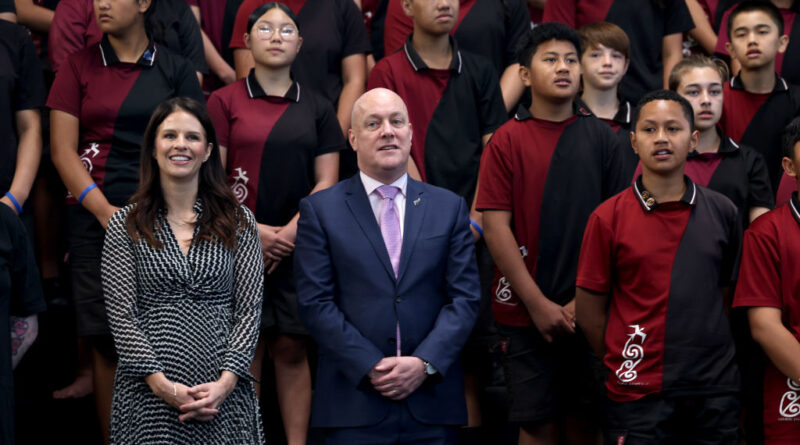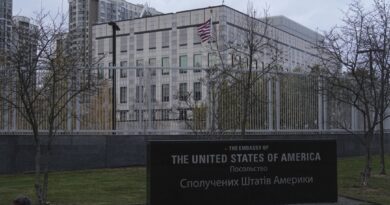Emotions Soar as New Zealand Government Issues Apology to Victims of Foster Care Abuse
The prime minister stated, ‘I make this apology to all survivors on behalf of my own and previous governments.’
Emotions were high as the New Zealand government was set to formally apologize to survivors of abuse in state care today.
When Prime Minister Christopher Luxon stood to address Parliament, a person in the public gallery began shouting, leading Speaker Gerry Brownlee to direct guards to remove him.
The individual was later identified as Karl Mokaraka, an abuse survivor who had previously run for office with the Destiny Church’s Vision NZ party last year.
Four security guards had to escort Mokaraka out of his seat and towards the exit before he relented and left.
While many of the other 200 survivors in attendance expressed their disapproval, there was a prevailing sentiment that the apology lacked meaning as the government hesitated to address the wrongs.
Oranga Tamariki (Ministry for Children and Young People) and the Ministry of Social Development are the primary ministries responsible for overseeing various aspects of state care, where children are placed in orphanages, foster homes, or state-run institutions due to unsafe living conditions resulting from abuse or inability to care for a child.
Yelling, Tears at Earlier Event
Luxon’s formal apology followed a series of morning speeches at the Beehive (executive wing of Parliament) from heads of seven government departments accountable for the abuse. These speeches were also disrupted by heckling, particularly when Solicitor-General Una Jagose addressed the audience.
Some attendees left the room in tears.
The Royal Commission of Inquiry into Abuse in State Care exposed Jagose’s office for employing delaying tactics and withholding information to avoid potential multi-billion-dollar liability for the government.
“I am here today to say I am sorry,” she stated.
Audience members responded with objections, with one individual standing and turning away from her.
Oranga Tamariki Chief Executive Andrew Bridgman expressed regret, saying, “We are sorry for not providing you a safe environment to grow up in.”
“To every survivor and every individual who did not survive, to the children we failed, to the adults they have become, we apologize,” he added.
Ministry of Social Development Chief Executive Debbie Power acknowledged their failures, saying, “We may have believed we were protecting you from harm, but often, we were exposing you to harm. We did not always safeguard you. For that, I am deeply sorry.”
Others, including Secretary of Education Andy Jackson, Director-General of Health Diana Sarfati, Acting Police Commissioner Tania Kura, and Public Service Commissioner Sir Brian Roche, admitted their agencies’ shortcomings in caring for children in state institutions.
Although the government indicated that only individuals at the former Lake Alice Psychiatric Hospital endured torture, Lead Minister Erica Stanford clarified that treatment at other facilities did not meet the United Nations threshold for torture classification.
Compensation Receives Interim $32 Million Boost
Luxon commenced his apology by saying, “I make this apology to all survivors on behalf of my own and previous governments. You deserved better, and I deeply regret that New Zealand did not meet your needs.”
He apologized for the disbelief survivors faced when reporting abuse, the negligence of bystanders, and the poor oversight of individuals in care by the state.
Additionally, he announced an extra $32 million (US$19 million) to enhance the current compensation system’s capacity, promising a new unified redress system would be operational by the following year.
Presently, about 3,500 survivors are eligible for up to $30,000 through the rapid response system, significantly lower than the starting point for compensating wrongfully imprisoned individuals at $100,000.
“We acknowledge the challenges with the redress system… there is a strong commitment and effort to rectify the situation,” Luxon affirmed. “It is a complex and emotionally charged issue.”
Luxon emphasized that the government is addressing the 138 recommendations from the Royal Commission while ensuring the voices of survivors are heard.
A Day of Remembrance is scheduled for November 12 next year to honor the apology.





